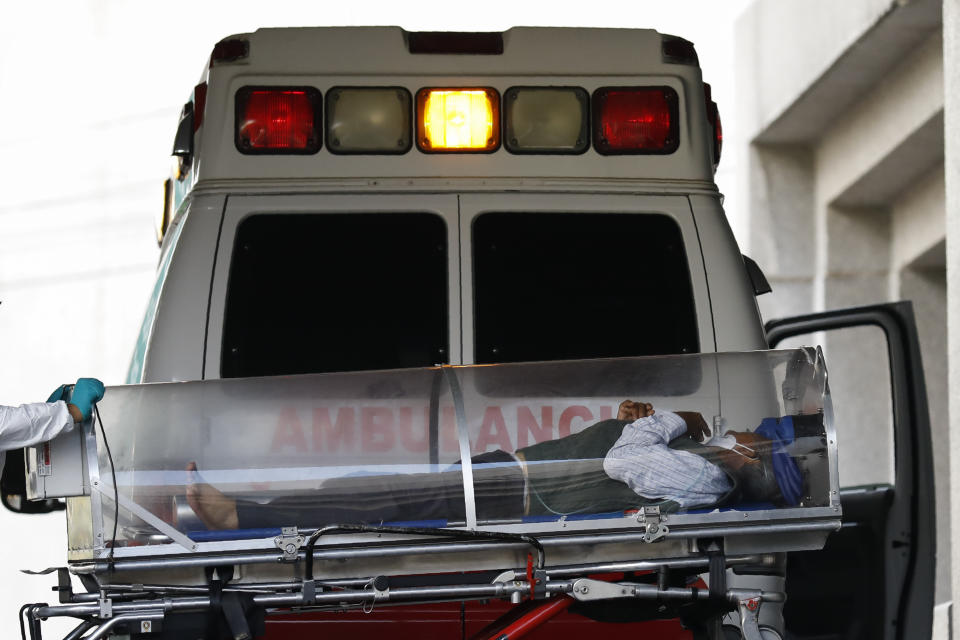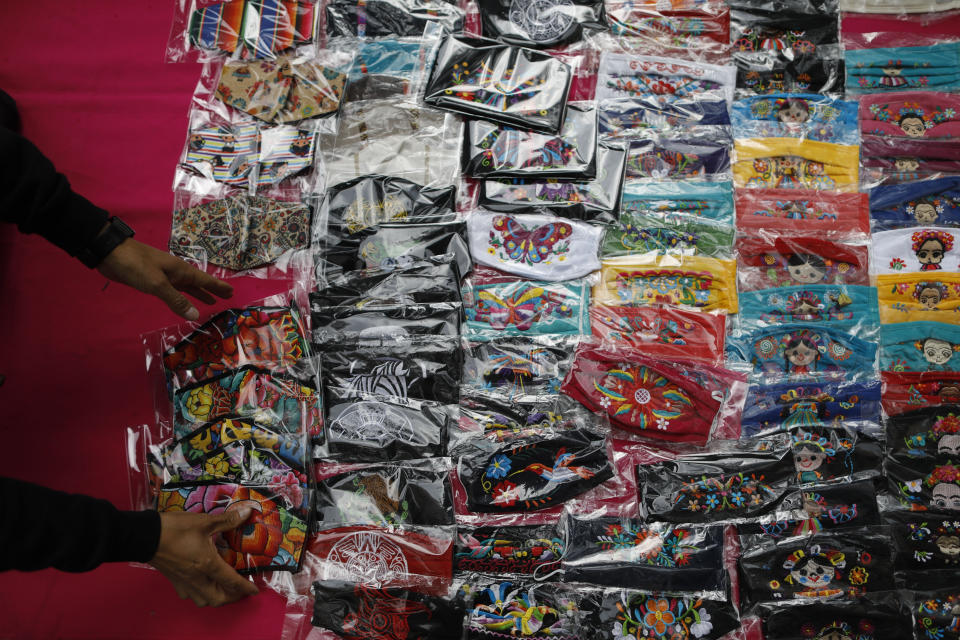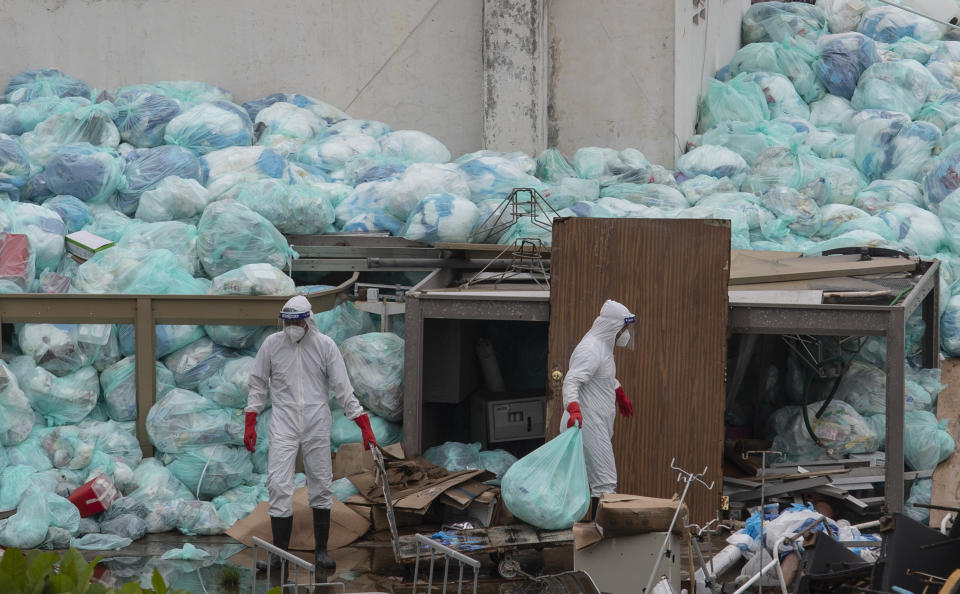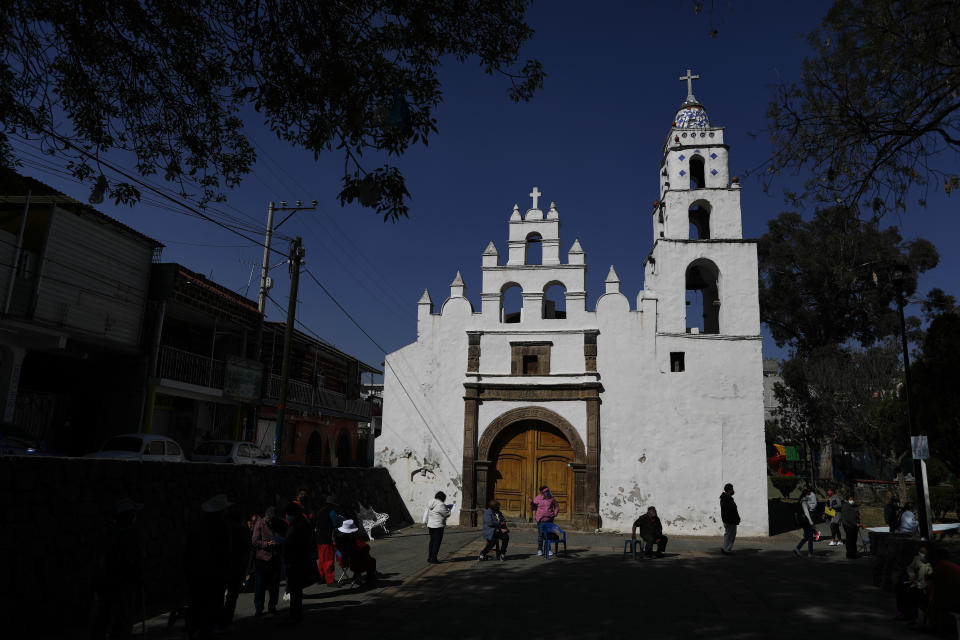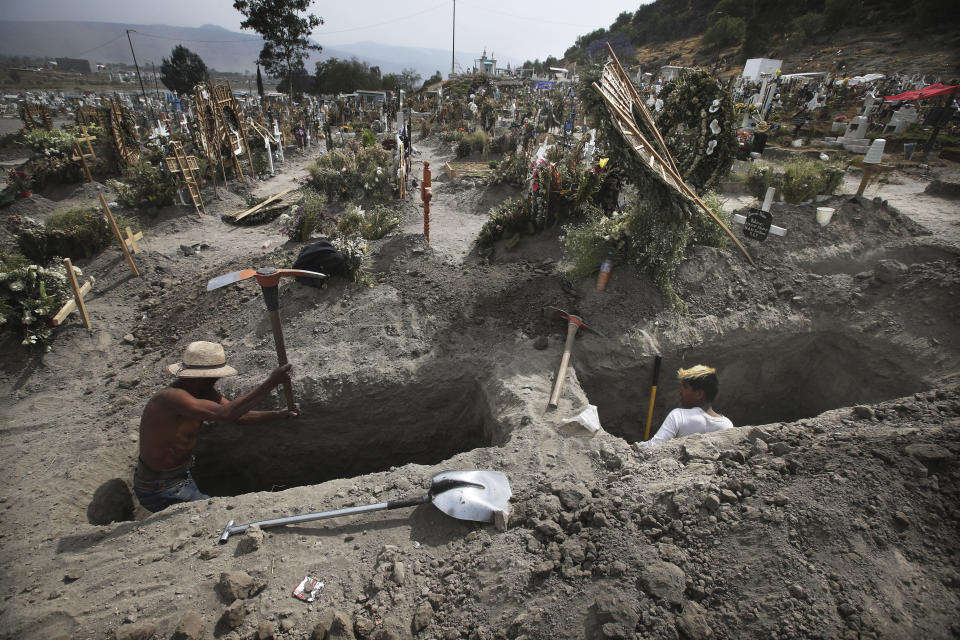Report: Mexico's COVID-19 policies cost huge number of lives
MEXICO CITY (AP) — Mexico’s unwillingness to spend money, do more testing, change course or react to new scientific evidence contributed to the country being one of the worst hit by the coronavirus pandemic, according to a report released this week by the University of California, San Francisco.
Mexico would have had a significantly lower death toll if it had reacted as well as the average government, according to the University’s Institute for Global Health Sciences, which also released a report sharply critical of the U.S. response to COVID-19.
Mexico’s Health Department says there have been almost 210,000 deaths in the country of 126 million, but because so little testing is done, it acknowledges the real toll is around 330,000. The United States and Brazil have higher tolls, but much larger populations.
The failure by officials to recommend face masks, institute travel restrictions, provide enough testing and protective equipment and institute social distancing measures were among the mistakes cited by the report, which was commissioned by the World Health Organization’s Independent Panel to the Institute for Global Health.
“Key decisions about how to confront the health crisis were based on unwarranted assumptions, without sufficient evaluation and judgement of the risks,” according to the report, which cited excessive concentration of authority and “a government communication campaign that prioritized keeping up appearances, and partisan politics, before health.”
For example, Assistant Health Secretary Hugo López Gatell, who has acted as the government’s point-man in the pandemic, repeatedly said that wearing face masks did not protect people from catching COVID-19, even after evidence mounted that they did.
“It is no coincidence that countries with the worst performance in responding to the COVID-19 pandemic have populist leaders,” according to the report. “They have in common traits such as minimizing the severity of the condition, discouraging the use of face masks, prioritizing the economy over saving lives, and refusing to come together with political opponents to mount a coherent response.”
Neither López-Gatell nor the government has commented on the report.
Former health secretary José Narro said that “while it contains some inaccuracies, the truth is, (it is) very good.”
Throughout the pandemic, López-Gatell ridiculed mass testing as a waste of money and effort. The government also emphasized the promise that there were hospital beds available, when in fact the system was saturated in many places.
Austerity-minded President Andrés Manuel López Obrador has spoken with pride of not acquiring debt during the pandemic and not launching economic stimulus programs. But the report says that penny-pinching may have played a role in decisions not to expand testing, trace cases and quickly acquire PPE.
"From the outset, health authorities deemed efforts to stop or contain the virus futile and a waste of scarce resources, arguing instead for a mitigation approach and the preparation of the health system to care for the small minority that would require medical attention,” the report said.
But concentrating so much power in the hands of López-Gatell, an appointee of López Obrador, led the government to double-down on early mistakes.
The human cost of the missteps has been overwhelming.
“Every day I cry for my son, for the circumstances” in which he died, said Martha Méndez Guevara, whose son, television sports journalist José “Pepe” Roldán Méndez, 43, died of COVID-19 in June.
Mendez Guevara brought photos of her son and an urn with his ashes to Mexico City's Basilica de Guadalupe Wednesday to have them blessed at an improvised shrine for pandemic victims.
She says she can't judge whether authorities' response to the pandemic was sufficient, in part because she never got to see her son after he was admitted to a government hospital in May. “We don't know if they did enough for him, because we we were not allowed to visit him," she said.
To be fair, the report notes that López Obrador’s administration had to contend with an already over-stretched health care system, and people’s “delays in seeking medical care out of fear that once admitted to a hospital, people would contract the disease or die.”
That meant many patients arrived at hospitals in advanced stages of the disease.
“The high prevalence of chronic diseases, in combination with suboptimal timeliness and quality of medical attention, have likely contributed to relatively high COVID-19 mortality among the non-elderly population in Mexico,” the report said, referring to Mexico’s very high levels of obesity and diabetes.
That also led to more deaths among younger patients; 50.6% of all COVID-19 death in Mexico occurred among people under 65 years old, compared to 18.7% in the United States.
The government said it would not institute mandatory face mask rules, strict lock-downs or travel bans, saying such moves would violate individual liberties. But the report noted the government failed to follow even its own rules, something it claimed that by February made Mexico City the second worst-hit metropolis in the world after Lima, Peru.
“Authorities’ miscalculations or tampering with the established epidemiological alert-system—which by December 4, signaled the highest level of risk—led them to postpone the reintroduction of strict restrictions in the city until December 18,” the report said, referring to a four-level scale based on case loads, hospitalizations and other measures that would have triggered business closures.
“By then, on the verge of the winter holidays, transmission had already spiraled," it said.


